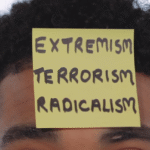Terrorism has plagued societies for decades, often fueled by radical ideologies and distorted belief systems. While governments worldwide have responded with military interventions, stricter laws, and surveillance, the persistence of terrorism proves that a purely tactical approach is insufficient. Breaking the cycle: combating terrorism at its ideological roots requires a deeper understanding of the underlying causes, psychological drivers, and societal factors that nurture extremism.
In this comprehensive guide, we’ll explore why ideological intervention is crucial, practical strategies for countering extremism at the source, and how a united global approach can create lasting change.
Understanding the Ideological Roots of Terrorism
Terrorism doesn’t emerge in a vacuum. It is the product of long-standing grievances, real or perceived injustices, economic inequalities, political oppression, and most importantly, extremist ideologies. These ideologies offer a distorted worldview that dehumanizes others and glorifies violence as a legitimate means to achieve so-called ‘righteous’ goals.
Key factors feeding ideological extremism include:
Identity crises and marginalization
Propaganda from extremist groups
Cultural and historical narratives of victimization
Religious or political indoctrination
Socio-economic frustrations
Unless these core ideological issues are addressed, terrorism will continue to reinvent itself in new forms.
The Limitations of Military Solutions
Military force may eliminate terrorist leaders or destroy infrastructure, but it does little to erase extremist thought. Often, violent crackdowns can inadvertently validate extremist narratives of oppression and martyrdom, making it easier for recruiters to manipulate vulnerable minds.
Key limitations of force-only approaches:
Short-term disruption rather than long-term eradication
Collateral damage breeding new grievances
Reinforcement of “us vs. them” mentalities
Alienation of entire communities
To truly dismantle terrorism, we must uproot the ideology that sustains it.
Education: The First Line of Defense

Education is a powerful antidote to extremism. It equips individuals with critical thinking skills, fosters empathy, and exposes them to diverse perspectives, weakening the allure of radical dogmas.
Effective educational strategies include:
Promoting civic education focused on human rights, democracy, and peace
Encouraging interfaith and intercultural dialogues in schools
Teaching media literacy to combat extremist propaganda
Providing alternative narratives that emphasize coexistence
Countries like Indonesia and Morocco have pioneered educational reforms that integrate moderate religious teachings and civic values to counter radical ideologies with notable success.
Deradicalization Programs: Reclaiming Lost Minds
Another pillar of combating terrorism at its ideological roots is deradicalization — helping individuals disengage from extremist beliefs and reintegrate into society.
Successful deradicalization models involve:
Psychological counseling and mentoring
Religious re-education led by credible scholars
Vocational training and employment support
Family and community engagement
Saudi Arabia’s “Munasaha” program, for instance, blends religious dialogue with rehabilitation, boasting a high reintegration rate among former extremists.
However, deradicalization must be tailored to individual needs. A one-size-fits-all approach rarely works.
Community Empowerment: Building Resilience from Within

Communities are on the frontline against radicalization. Empowering them to recognize and address early signs of extremism is vital.
Community-led initiatives can include:
Youth leadership programs to channel frustrations constructively
Dialogue forums to bridge gaps between authorities and citizens
Grassroots counter-narratives challenging extremist propaganda
Training local influencers and religious leaders in peace advocacy
When communities take ownership of their security and values, extremist groups find it much harder to penetrate and recruit.
Strategic Communication: Winning the Battle of Ideas

Terrorist organizations invest heavily in media operations, spreading fear and ideology through slick videos, online forums, and encrypted networks. Countering this requires an equally robust communication strategy.
Components of effective strategic communication:
Government-sponsored counter-propaganda campaigns
Partnerships with tech companies to flag and remove extremist content
Promoting authentic stories of former radicals who found peace
Amplifying voices of victims and survivors to humanize the cost of violence
Narrative warfare is crucial. Changing minds often starts by changing the stories people believe.
Global Cooperation: A Collective Responsibility
Terrorism transcends borders. Therefore, so must our efforts to fight it. Global cooperation ensures the sharing of intelligence, best practices, and resources needed for a unified response.
Essential areas for international collaboration include:
Joint deradicalization programs
Harmonized cyber laws targeting online extremism
Academic exchanges on counter-terrorism research
Multilateral forums like the UN Global Counter-Terrorism Strategy
No country can afford isolation in this fight. A safer world demands collective vigilance.
Addressing Root Grievances: Justice as Prevention
Beyond ideology, terrorism often feeds on real social and political grievances. Ignoring these can fuel resentment and radicalization.
Solutions involve:
Promoting inclusive governance that represents all ethnic, religious, and political groups
Ensuring access to education, healthcare, and economic opportunities for marginalized communities
Addressing human rights abuses transparently and justly
Creating pathways for political dissent within legal, peaceful frameworks
Justice and opportunity are powerful deterrents against the pull of extremism.
Case Studies: Successes in Combating Terrorist Ideology
1. Tunisia’s Youth Engagement Programs
After the Arab Spring, Tunisia faced a surge in radicalization. Innovative youth leadership initiatives, entrepreneurship programs, and civic education reduced vulnerabilities, channeling youthful energy into nation-building.
2. Sri Lanka’s Post-Conflict Reconciliation
Following decades of civil war, Sri Lanka invested heavily in reconciliation programs — language learning exchanges, inter-community dialogues, and memorial projects — weakening sectarian ideologies that had fueled violence.
3. Germany’s “EXIT” Program
Focused on far-right extremism, EXIT offers counseling, job placement, and support for individuals seeking to leave neo-Nazi groups. Its success highlights that ideological deradicalization works across the ideological spectrum, not just in religious contexts.
Future Challenges in Ideological Combat
While progress is being made, emerging challenges complicate the fight:
Online Radicalization: Encrypted apps and private forums make it harder to detect early radicalization.
Homegrown Extremists: Lone actors radicalized online pose unpredictable threats.
Polarization: Increasing political and cultural polarization globally can unintentionally create fertile ground for extremist ideologies.
Thus, combating terrorism at its ideological roots is a dynamic process that must adapt to evolving threats
Conclusion: The Path Forward
Breaking the cycle: combating terrorism at its ideological roots is not a short-term project. It demands long-term commitment, nuanced understanding, and integrated strategies that go beyond military might. Education, deradicalization, community empowerment, strategic communication, global cooperation, and addressing genuine grievances form the backbone of a sustainable solution.
As global citizens, policymakers, educators, religious leaders, and community members, we all have a role to play. By planting seeds of critical thinking, compassion, and justice today, we can create a world where terrorism has no fertile ground to grow.
Related posts:
 Separatism and Radicalism: The Seeds of India’s Terrorism
Separatism and Radicalism: The Seeds of India’s Terrorism
 Breaking India: Unveiling Forces Fragmenting the Nation
Breaking India: Unveiling Forces Fragmenting the Nation
 Astrological Significance of Maha Shivratri and Its Impact on Your Life
Astrological Significance of Maha Shivratri and Its Impact on Your Life
 Holi and Its Mythological Significance: A Century of Celebrations in India
Holi and Its Mythological Significance: A Century of Celebrations in India
 Chanakya Neeti: Timeless Wisdom for Modern Life
Chanakya Neeti: Timeless Wisdom for Modern Life
 Unlocking the Secrets of Sleep: How Sleep Physiology Shapes Brain Function
Unlocking the Secrets of Sleep: How Sleep Physiology Shapes Brain Function
